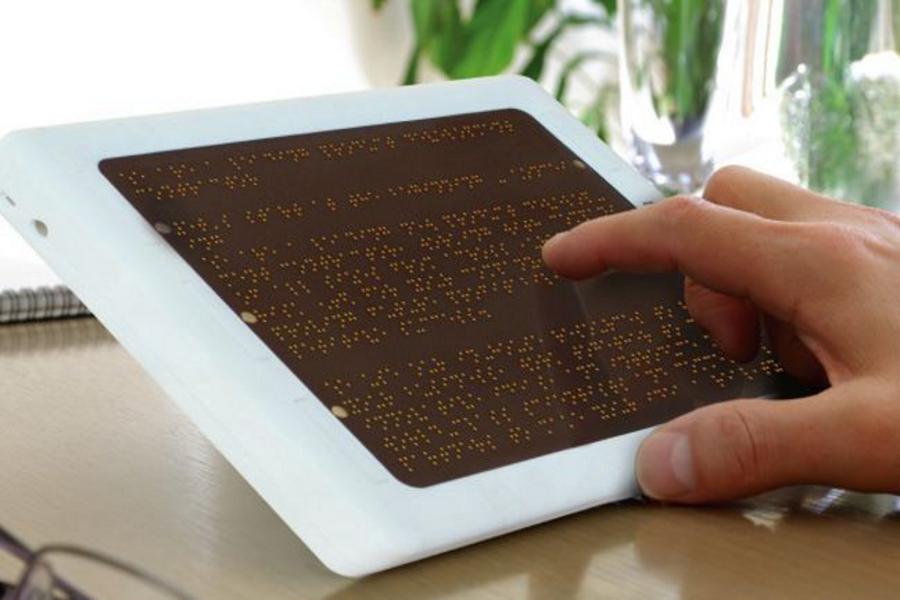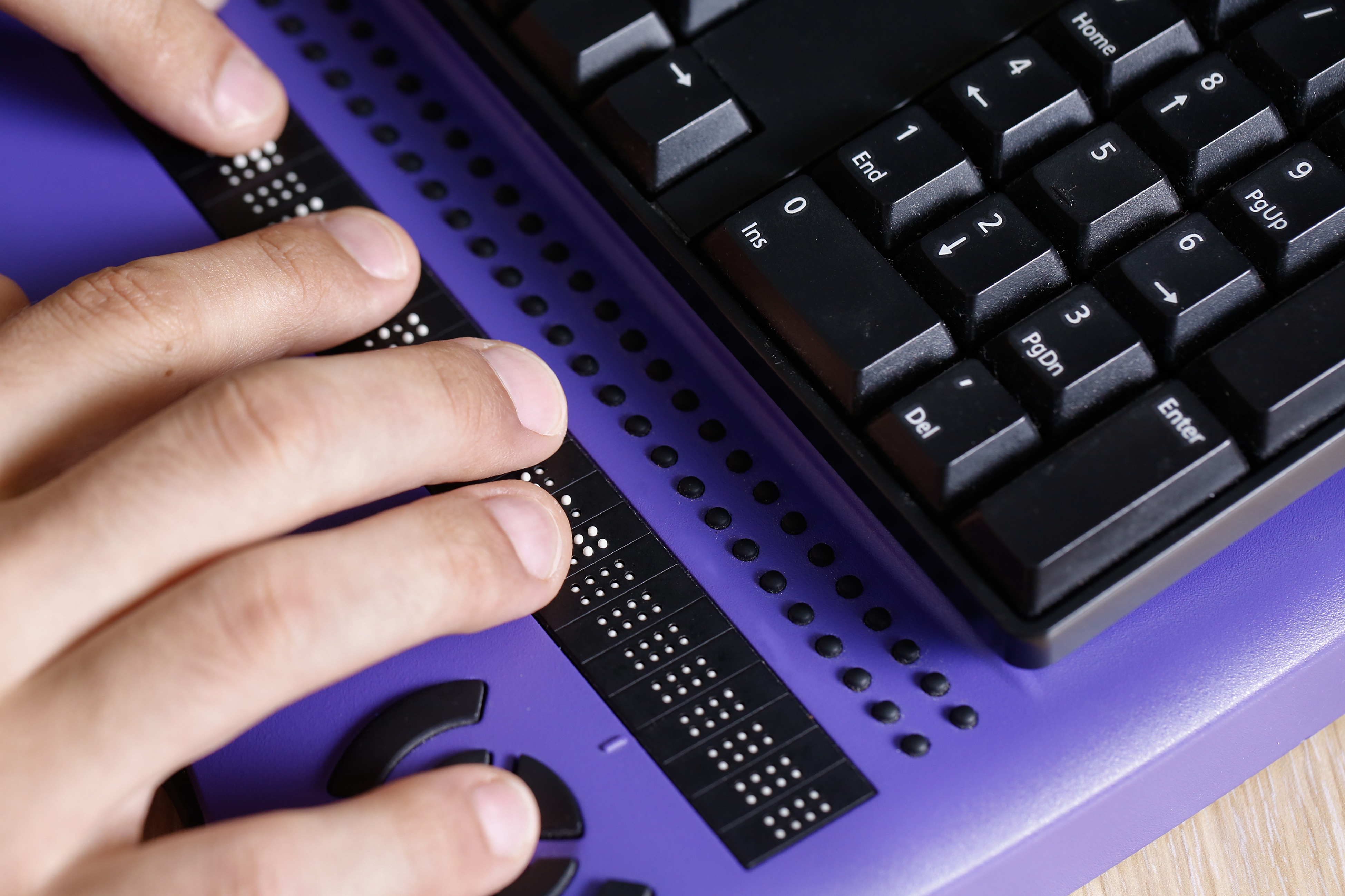Empowering Freedom With Assistive Innovation for the Blind
The integration of assistive modern technology into the lives of individuals with aesthetic disabilities stands for a substantial innovation in advertising independence and self-sufficiency. From cutting-edge display viewers to innovative clever canes, these tools not just boost daily navigating and communication but also empower customers to involve meaningfully in numerous aspects of life. As we check out the myriad benefits and real-world applications of these modern technologies, it comes to be crucial to check out the hidden elements that add to their performance and the potential for future growths in this crucial area.
Introduction of Assistive Innovation

The development of assistive innovation is based in principles of inclusivity and empowerment. Developments in software, equipment, and sensory enhancements supply customers with options customized to their specific requirements. From display viewers that convert message to speech, to tactile gadgets that communicate info via touch, these tools change the means individuals engage with their environments.
In addition to sensible applications, assistive innovation cultivates greater social addition and involvement in different fields, including education and work (OCR devices for the blind). As r & d remain to advance, the capacity for assistive innovation to further boost the lives of visually damaged individuals stays appealing, leading the way for a much more fair culture where everyone can prosper
Kinds Of Assistive Instruments
A selection of assistive tools have arised to support individuals with visual impairments, each designed to meet specific needs and boost day-to-day performance. These tools vary from low-tech remedies to modern technologies, giving varied alternatives for users.
Low-tech tools consist of magnifiers and large-print products that assist in analysis and writing. Braille devices, such as Braille stylus pens and slates, allow responsive reading and interaction. Positioning and wheelchair aids, like white canes, help users navigate their setting safely.
On the higher end of the range, digital zoom systems and screen readers use considerable assistance. Digital magnifiers enable users to expand text and photos on displays, while display viewers transform digital material right into manufactured speech, helping with access to details on mobile phones and computers.
Mobile phone applications additionally play an important role, providing functions like text acknowledgment and navigation help. Wearable technology, such as wise glasses furnished with increased reality, is arising as an appealing device to improve situational recognition.
Benefits of Assistive Modern Technology
The integration of assistive technology considerably boosts the high quality of life for people with visual impairments. These modern technologies empower individuals by advertising self-reliance, allowing them to navigate their atmospheres extra successfully and perform day-to-day tasks with higher convenience. For circumstances, screen readers and zoom software permit people to accessibility digital info, promoting specialist and educational chances that might have formerly been out of reach.
Furthermore, assistive devices such as smart walking canes and general practitioners applications provide real-time navigating help, improving mobility and safety and security. This enhanced autonomy not only improves self-esteem however also encourages social engagement, allowing customers to take part even next page more totally in their areas.
Assistive modern technology likewise helps with interaction, aiding individuals connect with others with voice acknowledgment and text-to-speech applications. This capacity is essential for keeping relationships and accessing essential information.
Additionally, the modification alternatives available with many assistive modern technologies make certain that individuals can tailor devices to their specific requirements, additionally improving functionality and performance. In general, the advantages of assistive technology for people with aesthetic problems are profound, advertising a much more comprehensive culture where everybody can pursue their ambitions and goals.
Study and Success Stories
Highlighting the transformative influence of assistive technology, many instance studies illustrate exactly how people with aesthetic impairments have efficiently incorporated these tools into their lives. One engaging instance involves an university student who used screen reading software to navigate academic products and on-line sources properly. This innovation not only facilitated her education however additionally improved her self-confidence in getting involved in conversations and team jobs.
An additional study features an expert who utilizes a smart device application made for navigating and things recognition. By utilizing this application, he has actually reclaimed freedom in both his personal and job settings, permitting him to commute separately and involve with coworkers extra successfully.
Additionally, a retiree shared her experience with braille e-readers, which enabled her to access a vast selection of literary works and stay linked with her neighborhood through publication clubs.
These success stories underscore the vital function of assistive innovation in fostering independence, enhancing lifestyle, and advertising social integration for people with aesthetic disabilities (OCR devices for the blind). By accepting these cutting-edge devices, users can overcome obstacles and confiscate chances that add to their personal and expert gratification

Future Patterns in Assistive Modern Technology
Innovation in assistive innovation is positioned to redefine about his the landscape of assistance for individuals with aesthetic impairments. Emerging trends highlight the assimilation of man-made intelligence (AI) and walk in vision exam near me artificial intelligence, which boost the performance of tools that aid with navigating and information ease of access. AI-driven applications are now qualified of interpreting visual information in real-time, allowing users to involve with their environment a lot more independently.
Furthermore, the growth of wearable innovation is advancing swiftly. Smart glasses equipped with augmented truth (AR) can give audio descriptions of surroundings, transforming just how users engage with public rooms. These gadgets not just advertise autonomy yet additionally foster social inclusion.
Furthermore, the Net of Points (IoT) is making homes smarter, permitting for smooth connectivity in between assistive devices and everyday home appliances. This connection encourages users by making it possible for voice-activated controls and automated responses tailored to specific demands.
Final Thought
To conclude, assistive modern technology plays a critical role in encouraging individuals with visual disabilities by improving their self-reliance and engagement with their environments. The varied variety of tools and applications offered not just facilitates navigating and interaction but also promotes social combination and chances for expert and personal growth. As developments continue in this field, the capacity for enhancing the high quality of life for those with visual problems will increase, cultivating higher autonomy and empowerment.
